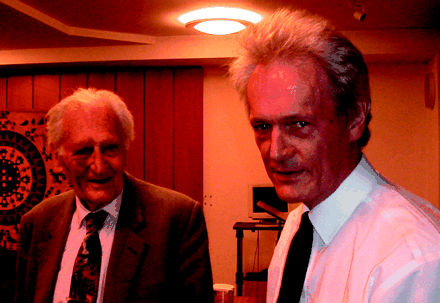Article Text
Statistics from Altmetric.com
The potential of the Catholic Church as a proactive force in tobacco control has been in focus recently (Tobacco Control 2003;14:78), but an even greater opportunity for bringing about long term improvements in health may be found in the Muslim world. Muslim colleagues argue that not only are there such large numbers of Muslims in the developing world, but the high proportion who attend the mosque every Friday means that if Muslim clerics can be persuaded to have a better understanding of the importance of the tobacco problem, their potential for encouraging cessation and cooperation with other aspects of tobacco control policy is not to be underestimated.
The award of the prize for medicine, one category in the prestigious King Faisal awards, to two of the world’s most distinguished medical research scientists for their work on tobacco, should provide a significant boost for tobacco control not only in the Middle East, but throughout the Muslim world. In January, it was announced that Sir Richard Doll, whose pioneering British Doctors Study with the late Sir Austin Bradford Hill laid the foundations of modern tobacco epidemiology, was to receive the prize in this category, together with his Oxford co-worker and collaborator of more than 30 years, Sir Richard Peto.

Sir Richard Doll (left) and Sir Richard Peto.
The citation said that their research had “unequivocally established the link between tobacco and various diseases, such as vascular diseases and cancers. Indeed, so great has been the impact of their studies that several national health policies have been modified as a result of these findings. The World Health Organization itself changed its position on smoking which culminated in a demonstrable decline in deaths related to cancer and atherosclerotic vascular diseases in several developed countries.”
This is the second major international prize for Sir Richard Doll in the past year. Last July, he received the Shaw Prize in Life Science and Medicine from the foundation set up in 2002 by Run Run Shaw, the famous Hong Kong businessman. The stated aim of the Shaw prize is to honour individuals who have achieved significant breakthroughs in academic and scientific research or application, and whose work has resulted in a positive and profound impact on mankind.
Sir Richard Doll is now 92, offering persuasive evidence of one of the findings of the British Doctors Study—that with cessation in good time (at the outset of his tobacco research, he was a smoker, like the majority of male doctors at the time), almost all the risk can be avoided. Despite deciding to cut down his workload this year, he can still be seen climbing two flights of stairs to his office most days, when not speaking at scientific meetings around the world, chairing data monitoring committees of randomised controlled trials, or attending to a wide variety of other work that would be quite enough for someone a generation younger.
Linked Articles
- News analysis
- News analysis
- News analysis


